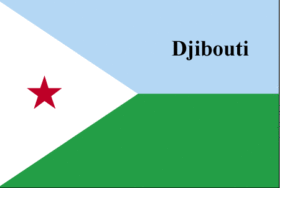 Education is a high priority in Djibouti (formerly known as Somaliland), a small country in the Horn of Africa. The Djiboutian government has increased spending on education, and enrollment and literacy rates are climbing in response to improvements in infrastructure, technology, and teacher recruitment and training. French and Arabic are the official teaching languages, which has proved problematic for teachers as many students may not speak either.
Education is a high priority in Djibouti (formerly known as Somaliland), a small country in the Horn of Africa. The Djiboutian government has increased spending on education, and enrollment and literacy rates are climbing in response to improvements in infrastructure, technology, and teacher recruitment and training. French and Arabic are the official teaching languages, which has proved problematic for teachers as many students may not speak either.
Public education in Djibouti consists of nine years of compulsory schooling, beginning with 6 years of primary school. Many students attend private schools; there are a number of Arabic madrassas which offer 12 years of instruction and send graduates to universities in the middle east. Catholic and Protestant primary and secondary schools operate in some areas.
Preprimary education is limited and largely privately funded. Primary schools begin at age six and last six years.
Secondary education is organized in two cycles. The first cycle, 4 years in length, consists of general studies. Students may then choose either 3 years of lycee to earn their baccalaueat or three years of technical/commercial studies (lycee industriel). A teacher-training track is also offered.
The following chart depicts the grading scale for secondary and post-secondary institutions:
| Scale | Description | U.S. Grade Equiv. |
|---|---|---|
| 16-20 | Tres Bien (Very good) | A |
| 14-15 | Bien (Good) | B |
| 12-13 | Assez Bien (Good Enough) | C |
| 10-11 | Passable (Passing) | D |
| 0-9 | Ajourne’ (Fail) | F |
Primary students study French, Arabic, speaking, writing, mathematics, history, geography, science, health, manual labor, physical education and music.
First-level secondary curriculum includes French, Arabic, English, history/geography, mathematics, natural sciences, technology, design, music, and physical education. Second-level students specialize according to their chosen path, which may be literature, science, or technical.
Higher education in Djibouti is provided by the University of Djibouti, which offers degrees in the humanities, law, and the sciences. The Centre de Formation des Personnel de l’Education Nationale trains teachers, while distance learning, in collaboration with the University of Dijon, is available for students with internet access.
© 2026 Gaetranslations | Terms & Conditions
Website by: Timefortheweb